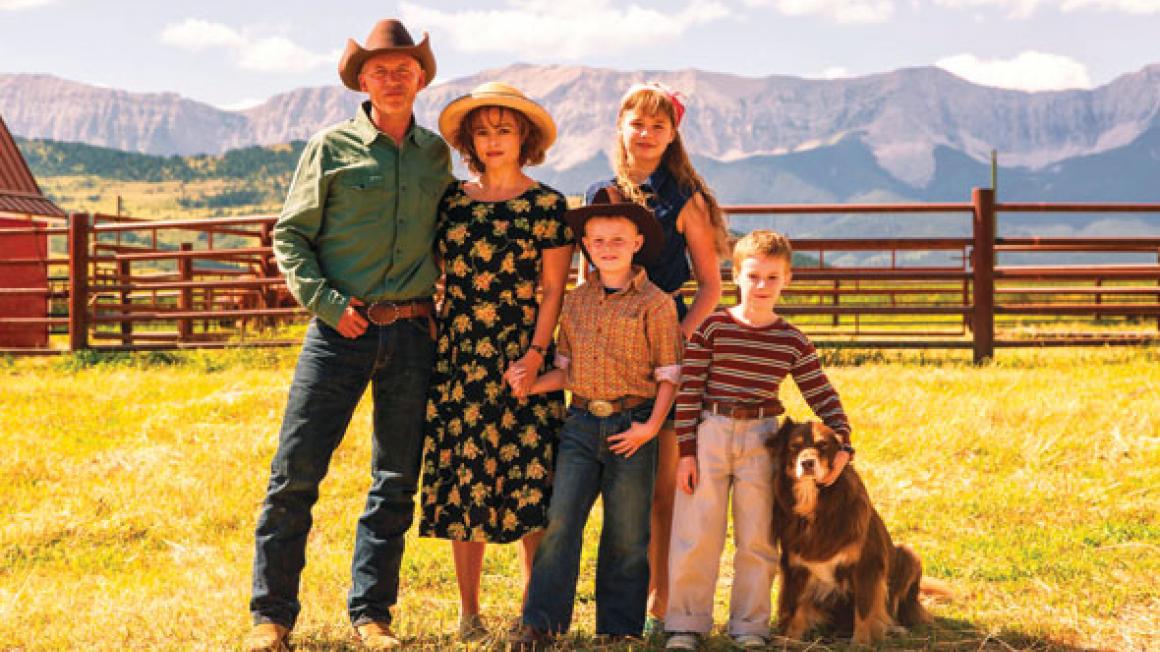The Young And Prodigious T.S. Spivet
 Jean-Pierre Jeunet’s beautiful, bright palette is the perfect fit for a children’s film. Amélie, the director’s major calling card, may as well be one (without the bonking), and that film’s sense of wonder runs through T.S. Spivet, like the Montana mountains that back on to his farmland home.
Jean-Pierre Jeunet’s beautiful, bright palette is the perfect fit for a children’s film. Amélie, the director’s major calling card, may as well be one (without the bonking), and that film’s sense of wonder runs through T.S. Spivet, like the Montana mountains that back on to his farmland home. Ten-year-old Thomas Sparrow Spivet is a tiny genius. The son of a scientist (Helena Bonham Carter) and an old-fashioned cowboy (Callum Keith Rennie), he lives in a state of benign neglect on the family farm, happily exploring scientific fields that should be well out of his age range and driving his jealous teacher increasingly mad. Kyle Catlett is both charming and believable as the young prodigy, without being annoying.
With the ancient television constantly showing black-andwhite Westerns, and the family’s old phone, the farm feels ageless. It’s T.S.’s teenage sister Gracie (Niamh Wilson) who pulls us into the modern day through her horror at the familial lack of cool and refusal to take her passion for beauty pageants seriously. T.S. also has a brother Layton (Jakob Davies), as wild and outgoing as T.S. is quiet and fond of science. The problem is that Layton died in a shooting accident, which T.S. feels responsible for, and now T.S. only sees Layton’s spirit, and feels the weight of guilt for the loss of his father’s favourite son.
It means that when he gets a call from the Smithsonian Institute wanting to give ‘Mr T.S. Spivet’ an award for one of his projects, leaving the farm seems a sensible option, and he embarks on a cross-country mission to collect his prize and perhaps make his father proud of him in his own right; not disappointed at his not being Layton.
The first part of the film is lovely. Jeunet is wonderful at visualising thought processes, and creating unusual characters that you fall in love with. Even the 3D effects, which I largely fail to see the point of on most films, are well done. 3D’s element is nature, and here you gasp as tumbleweed sweeps past, or a drop of water pulses fatly.
I could quite happily have stayed in T.S.’s world on the farm and seen what happened there, because things all go quite mad as soon as he reaches his goal of the Smithsonian. Scientists are generally quite sensible, but here they are grasping and screechy. At a dinner to give T.S. his award, they hang back, pointing, before patronisingly clucking over him. I have nearly zero scientific nous, but if a child turned up at my party having solved a huge scientific problem, I imagine I would take him seriously. By the time his contact at the Smithsonian is pimping him and his sad back story out on a television talk show, I started to feel seriously uncomfortable.
The half of T.S. Spivet that works, does so beautifully. I hope that Jeunet tackles children’s film again soon, but maybe without so many adults.


